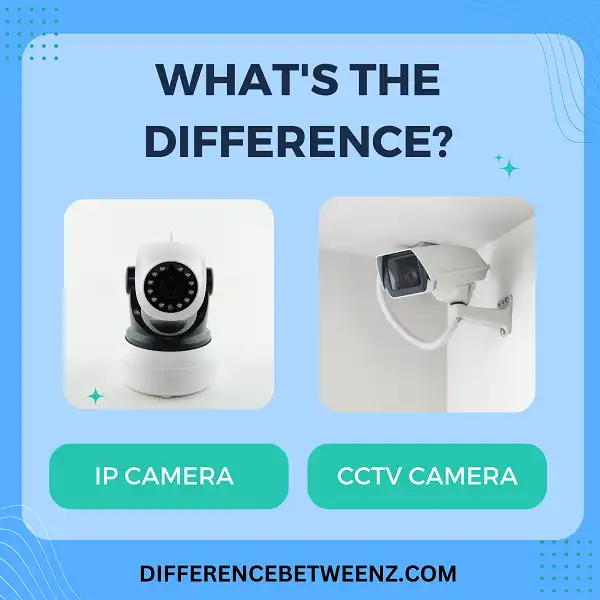As the discussion of security intensifies in our homes and businesses, the question of what type of surveillance is best arises. Many people struggle to discern between an IP camera and a CCTV system. Both have distinct advantages and disadvantages that make them suitable for a variety of situations; but, which one should you choose? In this blog post, we will explore the pros and cons associated with these two systems so that you can make an informed decision when it comes to protecting your property. We will take a deeper look into how they operate structurally as well as break down their cost-effectiveness. By the end of this article, you will have all the relevant information needed to assess both types of cameras so that you’re able to find out which operates best for your lifestyle and budget.
What is IP Camera?
IP Cameras are a unique and easy-to-use surveillance system for homes or businesses. IP Cameras use the same technology as your computer to communicate over an internet connection, allowing them to be viewed from anywhere at any time. IP Cameras can provide real-time data, making them perfect for monitoring property or activities, even when you’re not around. These cameras are simple to set up, provide wide viewing angles, can record in HD quality, and have motion detection alerts. IP Cameras offer many features that traditional cameras don’t have. With IP Cameras, it’s easy to keep your home or business safe with remote monitoring straight from your phone or laptop.
What is CCTV Camera?
- CCTV cameras, short for closed-circuit television, are devices that act as digital eyes and ears in crowded public areas such as retail stores, events, streets, and other gathering places.
- CCTV cameras have the ability to capture footage from a wide range of angles and distances, making it useful in crime prevention or investigation. CCTV technology has come a long way in recent years, offering features such as night vision mode, facial recognition software, temperature detection, and real-time monitoring.
- CCTV systems have become more affordable and a popular choice for businesses who want to increase security when it matters most. From preventing shoplifting to deterring vandalism or burglary and even providing aid during emergency incidents, CCTV cameras are essential tools for keeping people safe.
Difference Between IP Camera and CCTV
IP Cameras and Closed-Circuit Television (CCTV) are two innovative solutions for video surveillance.
- IP Cameras are digital video cameras that can be used for remote monitoring, both indoors and outdoors, using the internet. By contrast, CCTV employs a series of connected cables or wires to transmit video signals to a centralized monitoring station.
- IP Cameras operate wirelessly and send their data over a network connection, eliminating the need for expensive hardware such as signal boosters and distribution points.
- IP Camera systems can be monitored locally or remotely from any location with Internet access. However, IP Cameras generally offer lower resolution than CCTV cameras, so they may not be suitable in situations such as long-range surveillance or large-scale projects.
Ultimately, IP Camera systems provide security solutions that require less setup time and fewer components than their traditional CCTV counterparts.
Conclusion
It is important to know the difference between an IP camera and a CCTV camera before making a purchase. IP cameras are digital cameras that can send and receive data over a network. They are typically used for surveillance and can be found in business settings such as retail stores or office buildings. CCTV cameras, on the other hand, are analog cameras that require a physical connection to a recording device. They are often used in homes for security purposes. When choosing which type of camera to buy, it is important to consider the specific needs of your application. IP cameras offer more flexibility and features than CCTV cameras, but they may be more expensive.


